How online dating apps are making it easier for people with disabilities to look for love
Online dating comes with multiple challenges, including fake profiles and inappropriate behaviour. But what is the experience like for someone who is physically disabled?

Image Credit: Inclov
After nearly six years of being single, 30-year-old Anisha Banu Multani, who is afflicted with polio, decided to meet someone special. Instead of waiting for love to find her, she tried online dating and found her match in Garana Imran, an accountant from Gujarat’s Junagadh area, who’s afflicted with polio himself. The couple got married in 2017.
In an era where people are trying to find their ideal date on online dating apps, the fear of rejection is the most difficult feeling for anyone to encounter. It taps into some of our worst fears – the fear of being rejected because of the way we look or the fear of not being good enough. But have we ever thought how difficult it is for a differently-abled person to deal with such issues?
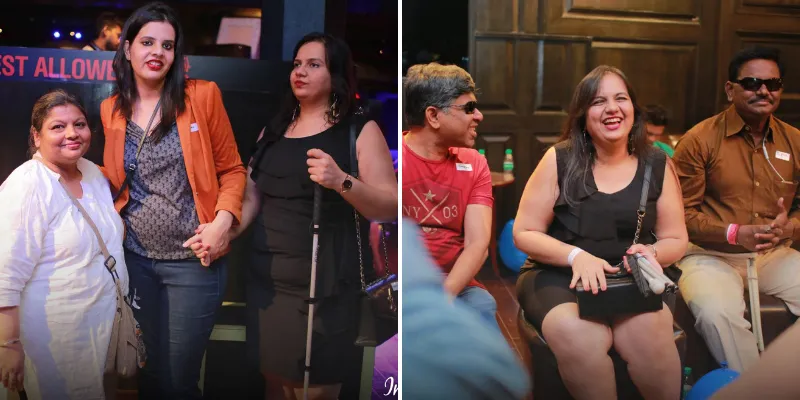
Inclov offers meet-ups and opportunities for people with disabilities to interact and connect with one-another. Image Credit: Inclov
Disability comes with a lot of stigma attached to it, and the differently-abled face many issues in their day-to-day lives. The slurs become more rampant when they try to socialise with people, make friends, and/or get into a relationship.
Prateek Khandelwal, Pioneer of RampMyCity, an initiative to make places disabled-friendly in Bengaluru, says:
“People always say that they want to connect with their heart and mind. But in reality, their perception does not move beyond physicality. They do not look beyond the wheelchair or attempt to understand the true personality of the individual. People tend to think that if they date a physically challenged person, they cannot dance, travel, or have a good time with him or her.”
Also read: Enabling the differently abled: How inclusive are India’s workplaces?
Online dating and disability
As a ground rule, being open about oneself on dating platforms is considered important. Listing out things that are worth mentioning is essential, lest the date itself might turn out to be an unsettling experience. And this is all the more crucial when it comes to people with disabilities.
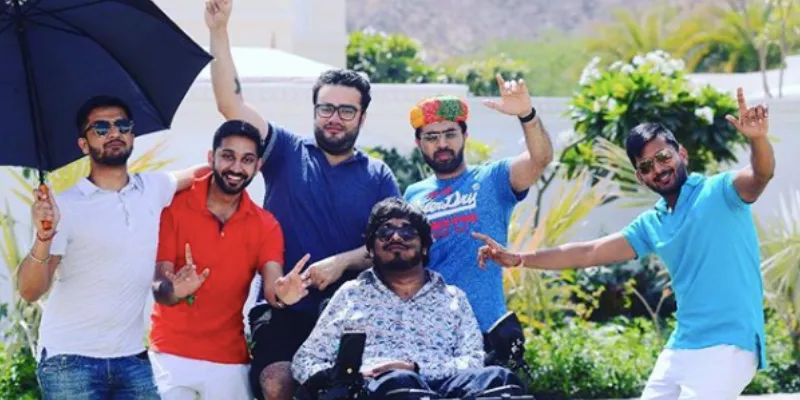
Sachin does not let his disability stop him from having a good time with his friends.
Sachin Chamaria (28) talks about his experience on online dating sites. Sachin, who met with an accident when he was a teenager, was left paralysed from the chest down (quadriplegia). However, he gained some movement in his hands after therapy and treatment, and is financially independent today .
“I am very open about my disability. In the beginning itself, I tell them about what led to the disability and how it happened. Besides, I don’t feel bad when I talk about it since it is who I am, and the person on the other side ought to know about it,” Sachin tells YourStory.
However, honesty is seldom rewarded. He says, very often, the conversation ends there or abruptly stops after the exchange of a few messages. Sachin says perhaps the girl is looking for something else, or may be apprehensive about interacting with a person with disability (PwD).
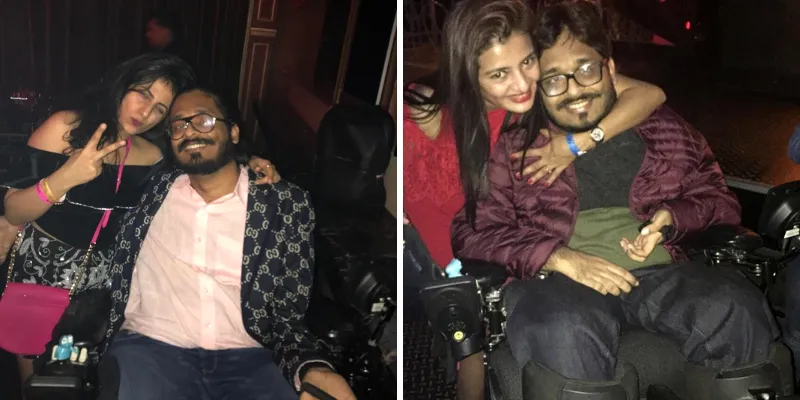
At clubs and restaurants, strangers often come to Sachin and take a 'selfie' with him.
It can also become unpleasant when you face rejection from the person with whom you are in a relationship with.
Prateek says he faced similar problems in his relationship. He was dating a girl for over five years until an accident left him paralysed. While talking to his friend in an under-construction building, he tripped and fell down the stairs, landing one floor below. Prateek underwent multiple surgeries - head and spinal cord – but he ended up with loss of motor functions below the waist.
“A year after the injury, my girlfriend broke up with me saying that anybody would call it off for a person like me, since I was disabled now for life. She said she did not want a liability, and wasn’t ready to stay with someone who would be dependent on her for life,” Prateek says.
However, he faced different issues when he moved on and started using dating apps to meet people. He says:
“A lot of girls asked me questions like these – OMG, are you okay? Is this permanent? I find it weird to sit with you, what will people think of me? What if you don’t perform in bed?”
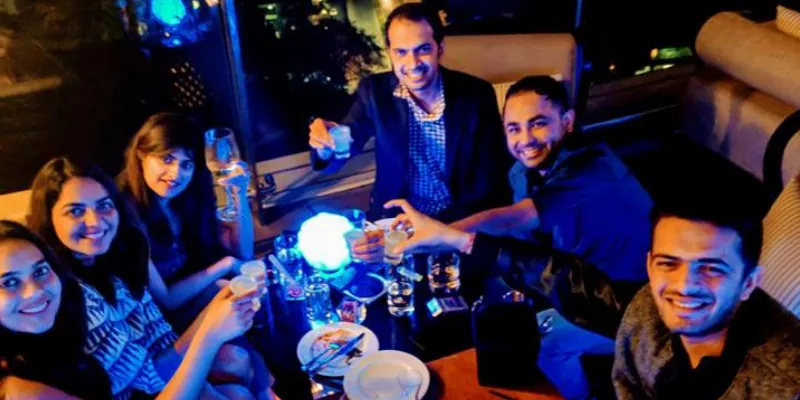
Prateek celebrates his birthday with his friends at a lounge in Bengaluru.
He says when a physically challenged person goes out on dates, it is not uncommon for them to be subjected to different forms of stigma like stereotyping, discrimination, and condescension.
App experience matters
Online dating has over 3,48,00,000 users in India alone. There are umpteen dating apps available, including Tinder, Truly Madly, Woo, and Aisle. It’s not only the "so-called" mainstream singles who sign up on these apps; they are also used by people with disabilities. “I have been on Tinder for over four to five years now. I am also on groups such as Coffee Meets Bagel, and recently I have even downloaded Bumble. I started signing up on these apps just out of curiosity to see if it actually works in real life,” Sachin says.
The online dating experience is not any different for PwDs. Just like any other single person, they say they too feel butterflies in their stomach while messaging someone or meeting new people.
“Like others, I am also looking forward to meeting different people to be socially active, to go on a date, and hope that it develops into a relationship,” Sachin says.
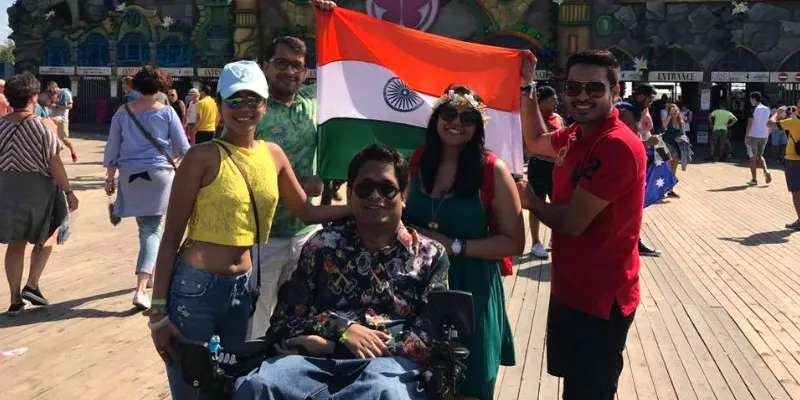
Sachin traveled to Belgium last year for the Tomorrowland Music festival.
He adds that another common problem they face is unfriendly public spaces. For instance, lack of infrastructure in public places and restaurants restricts their movements.
“It would have been easier in the US or Europe to find ‘matches’ and go out to meet people through these apps. They are not new to the concept of PwDs who socialise or ‘hang out’ at clubs,” he says.
Also read: Design for a higher purpose: empowerment and inclusion at Pune Design Festival 2019
Dating apps for PwDs
However, while there are many cases of rejection, there comes a silver lining in the melee of dating apps. Founded by Kalyani Khona, Inclov is an online dating platform that provides services exclusively for PwDs. Anisha also found her match through one of its meet-ups and speed-dating sessions.
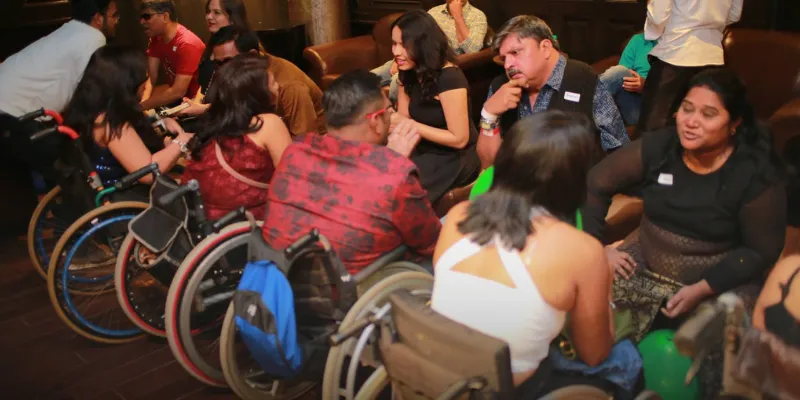
A snapshot from Inclov's speed dating session.
“In the process of understanding the differently-abled community better, we realised that many of their social lives are rather restricted. Inclov paves the way for meet-ups where the space is fully accessible for the disabled, along with facilities like presence of sign language interpreters and completely sensitised staff,” says Shankar Srinivasan, Co-founder of Inclov.
Differently-abled people are no different from the mainstream society. They too have a desire to meet people, make friends, go out on a date and if things fall into place, get into a relationship.
“I don’t want any special privilege. I don’t want empathy or sympathy. I simply want equal treatment. Is that too much to ask?” Prateek questions.
All they expect through this journey is an inclusive spirit.






